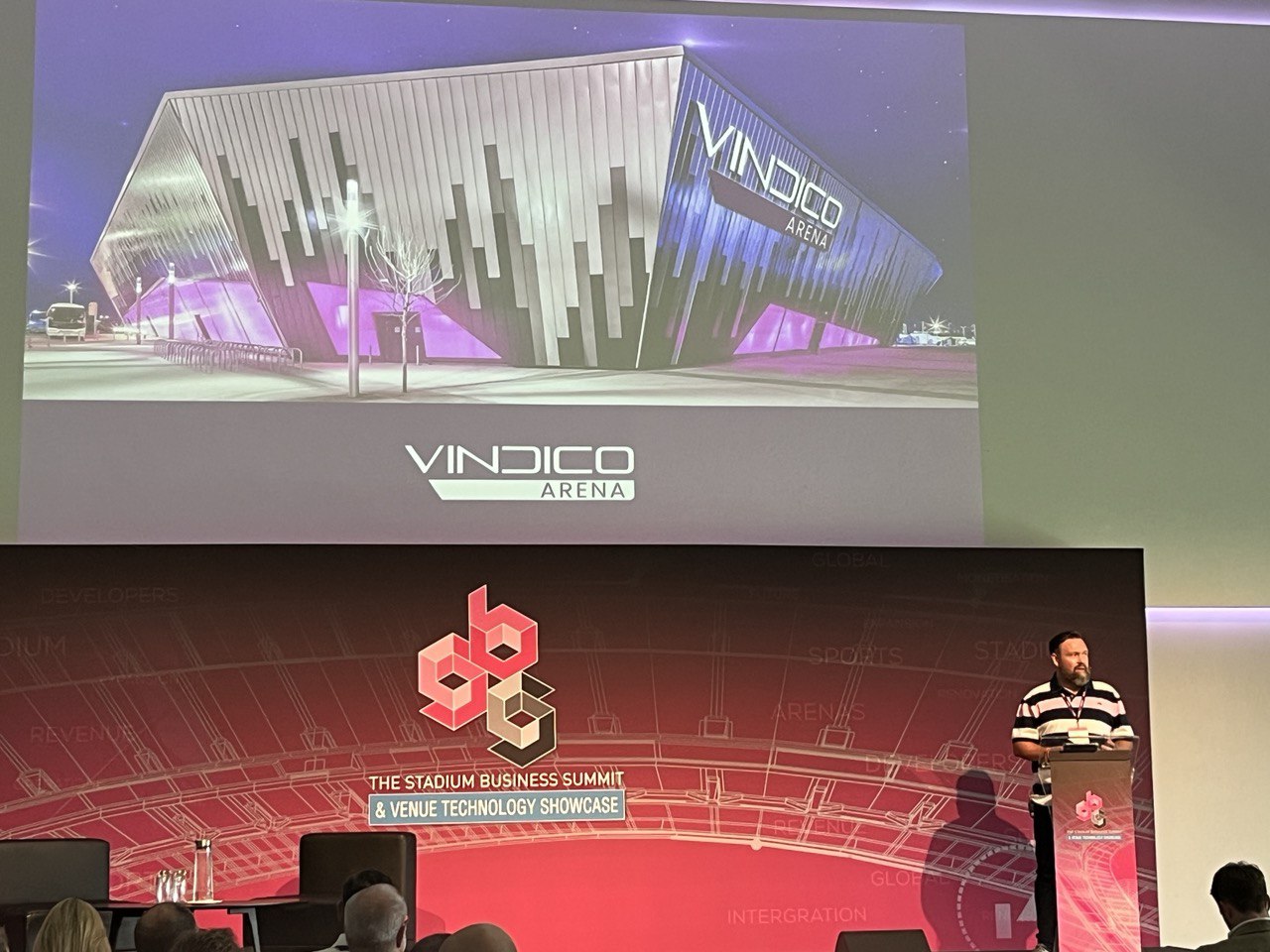Blog

7 THINGS YOU NEED TO KNOW FROM JO POLSON’S 2023 THESTADIUMBUSINESS SUMMIT TALK...
Vindico MD Jo Polson took to the stage at the 2023 TheStadiumBusiness Summit to shine the light on the stadium tech revolution. In this popular talk from TheStadiumBusiness Summit, Jo delves into the transformative power of Vindico’s Think Purple approach – a philosophy that goes beyond the ordinary to deliver exceptional results – and how this is revolutionising tech and the sport and stadia sector across the UK. Here, we unravel the key insights from the tech entrepreneur’s presentation, exploring the shift in spreadsheet usage, the challenges of complexity, and the strategic diagnostic process that’s changing the game for sports teams and venues. Here’s an exclusive recap of the seven key take-aways from Jo’s talk that’s setting the stage for unparalleled technological advancement in the stadia sector. 1. Think Purple Vindico’s mantra is “Think Purple”. To “Think Purple” means asking better questions to deliver better outcomes. And it’s more than just a catchy slogan. It’s a philosophy that shapes everything Vindico does. From creating SWAPP (Smart Workplace Application) to help the stadia sector get back up and running during Covid, to developing easy-to-use tailored tech and software platforms, which are designed as a foundation for customisation. Every Vindico product is led by innovation and emphasises simplicity, seamless integration, easy adoption, and enjoyable use.Click here to see Vindico’s journey with Principality Stadium. 2. Focus on Understanding and Customisation Delivering solutions for the unique operations of stadiums, arenas, and other sporting and event venues involves a deep understanding of each business’s needs. Whether it’s streamlining event operations, improving team efficiency, simplifying the stadium accreditation process, or enhancing communications with stewards and the casual workforce, tailoring an easy-to-use central platform is key to optimising event day efficiency. 3. Beware the Rise of the Spreadsheets Vindico has observed a 60% increase in newly created Excel spreadsheets post-pandemic. That’s a lot of data and processes trapped in spreadsheets that previously would have been dealt with differently. And the Stadia sector is not exempt. The rise of more individualised spreadsheets could be attributed to familiarity with the format, a lack of formal training, and remote work isolation. Of course, spreadsheets have become a universal tool for task tracking, reporting, and data management. Used correctly, they can work well. But they also create silos: with everyone using different lists for different things. These individualised lists also means that businesses are at risk of a loss of data and / or understanding of that data should an employee leave. Click here to see ten common Excel problems – and one easy fix. 4. The Rabbit Hole of ComplexityThe rise of Excel spreadsheets isn’t always a bad thing. But it becomes a dangerous rabbit hole when layers of complexity are required. When complexity enters the mix, these tasks often get routed to the finance team. The problem is that finance experts are highly skilled in Excel. But the rest of the organisation / users are generally not. Intricate spreadsheets that are not automated and require manual updates and input from experts means that knowledge access and transfer throughout the business can also become a problem. This highlights the importance of asking “Should we do this in Excel?” instead of just “Can we do this in Excel?” 5. A Diagnostic Approach to Stadium TechWe don’t have a time machine to go back and stop the Excel overload, but diagnostic sessions come close. In fact, they’re a starting point for every Vindico project in the sport and stadia sector. Using the signature “Think Purple” method, the diagnostic phase delivers a clear understanding of processes, software, integration opportunities, pain points, and resource constraints. This helps paint a clear picture of what the “good” looks like, and how to align it with budgets and phased implementation.Find out more about the importance of a diagnostic here. 6. Automation, Integration, and BeyondOnce the diagnostic phase is complete, it’s possible to take that understanding of the “good” and add layers of automation to drive tasks, integration to ensure data is correct, live dashboards to show progress – with nudges and alerts – and simple snapshots of key processes. We’ve even built in training and e-learning directly into some projects. Some other recent projects include AI-driven plans, improved communication, and training platforms, and staffing management at the Principality Stadium.See how tech is fuelling stadium safety here. 7. The Future Although we first created tech and software platforms for teams and stadiums during the pandemic, we quickly realised that they weren’t just solving old problems brought on by COVID, but were also helping to rethink, solve, and game-change existing challenges within the sectors too. To date, we’re helping teams and venues across the UK spanning football, rugby, cricket, ice hockey, and athletics. And, as venues look to operate smarter and more efficiently, the demand for simple, adoptable, and easy-to-use tech is becoming even more in demand. Want to join the other stadiums and teams who already “Think Purple”? Get in touch to see how we can help adopt the tech you need to optimise everything from everyday operations, stewarding and contract management, compliance, team culture, event day experiences,
Learn More




